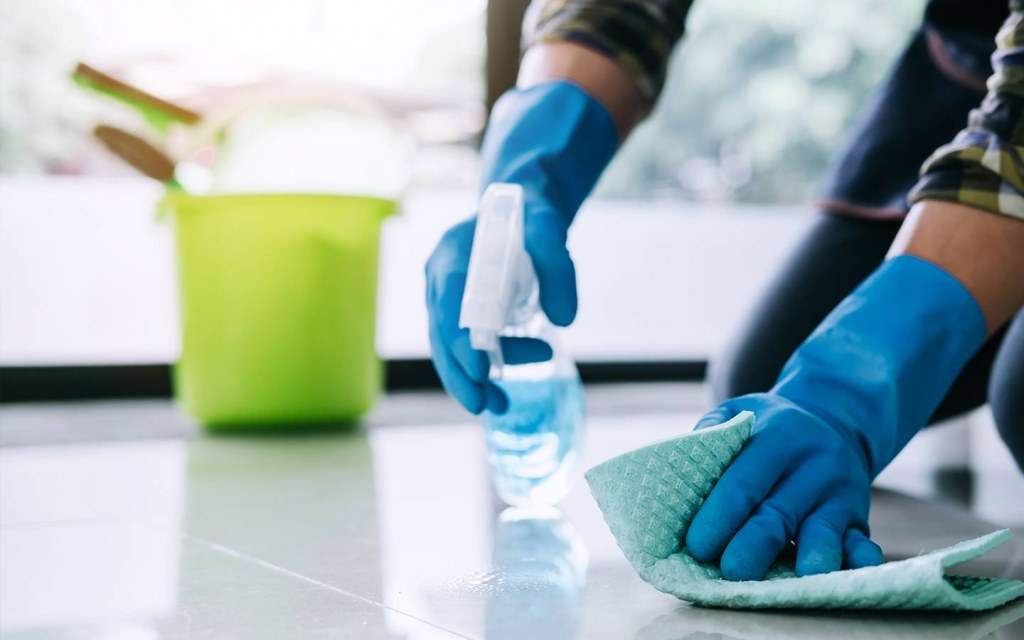
If you have a marble countertop or floor, polishing is essential to maintain its glossy look and protect the surface from stains. But when should you do it?
The answer depends on your level of expertise. Generally, it’s best to leave it to professionals for the sake of your safety.
Cleaning
If you want to preserve the look of your marble surfaces, it’s crucial to clean them properly. A daily maintenance routine is the best way to keep them looking shiny and new.
Using pH-neutral cleaners that are specifically designed for marble is the best bet. These types of products don’t damage the stone or leave a film on it, so you can be confident your marble will stay looking good for longer.
Steer clear of harsh chemicals like bleach and vinegar. These can etch the stone and cause it to dull over time.
Stains from common spills can also be removed by using a damp microfiber cloth with warm water and neutral detergent. For stubborn stains, you may need to use a commercial cleaning product.
Before you polish your marble, make sure it is completely clean and free of all traces of grit, dirt and dust. This will prevent scratches that will ruin your polished finish.
Stain Removal
Marble is a highly sensitive material, which makes it very vulnerable to stains. Acidic substances such as lemon juice, wine and urine can etch your marble if they get into the pores of the surface and cause the top layer to wear off, leaving a dull, patchy appearance.
Paint stains on marble are another common issue that can make the surface look unattractive. Unlike oil and grease stains, which are light or dark brown, paint stains can be difficult to remove.
To avoid these stains, keep the surface of your marble properly sealed. If not, liquids that are acidic, such as fruit juice and alcohol, can penetrate the stone, causing permanent stains.
Polishing
Polishing marble is an essential step in preserving its lustre and preventing stains, scratches, and other damage. Marble polishing also increases the marble surface’s density, making it less susceptible to chipping and cracking.
A well-polished marble is easy to maintain and aesthetically pleasing for years to come. It also adds to the resale value of your home.
If there are any stains or discolorations on your marble, you should remove them before polishing. A poultice, a paste that contains baking soda and other ingredients, is often used for this purpose.
You can also use a solution of one tablespoon of ammonia, half a cup of hydrogen peroxide and enough baking soda to achieve a thick, creamy consistency, to remove stains on marble. Spread it over the stain and cover with plastic wrap (edges taped down), then leave it to dry for 12 to 24 hours. This will help remove the stain without etching or damaging your marble.
Sealing
Marble is a natural stone and needs to be protected from the damage that it can get from dirt, scratches, and other contaminants. Sealing the stone can make it look better and last longer.
A good way to know if it is time to seal your marble is to test the surface. Place a few drops of water on the surface and see if it beads up or if it stains.
If you see that the water is absorbed into the surface, then you need to apply a new coat of sealer.
Pour a small amount of product onto a paintbrush or spray bottle to apply the sealer. Using even strokes, spread the sealer over the marble’s surface, ensuring it covers every inch evenly.
Why are clothes called laundry?
Have you ever wondered why we call clothes “laundry”? The word laundry has a few different meanings, but the most common definition is “the washing of clothing and linens.” But why do we use that specific term?
One theory is that the word laundry comes from the Latin word lavare, which means to wash. Another theory suggests that it comes from the French word slavery. Either way, it seems clear that it was originally used to refer specifically to the act of washing clothes.
Over time, however, the term laundry came to encompass not just washing clothes but also drying them and ironing them for more visit https://wewash24.com/wash-and-fold-laundry-services/. In fact, nowadays we often use laundry as a catch-all term for all things related to caring for our clothing – from sorting and folding to mending and storing.